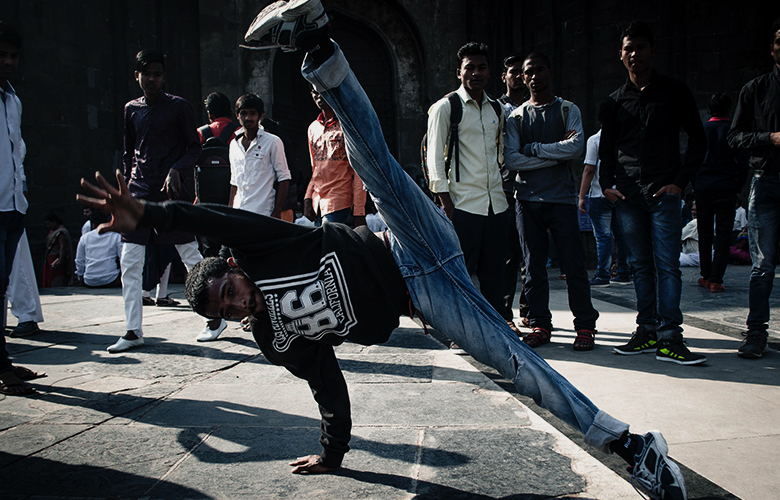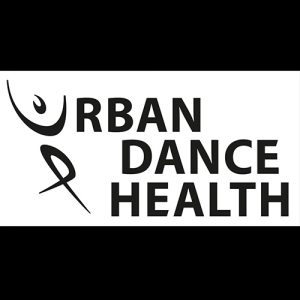
In breakdancing it has been shown that a lot of injuries occur. The body of a Bboy and a Bgirl handles an immense impact in training and performance. Aside from being an artist, the dancer is also a high leisure sports athlete with a high risk of injury.
A distinction is to be made between acute and chronic injuries. Since many Bboys and Bgirls avoid visiting the doctor, unfortunately chronic injuries are common. These chronic injuries could, however, often be treated with early therapy and rehabilitation and thus heal much sooner. Most injuries are caused by an overuse of a unilateral training and too little regeneration.
In the following post you can read more about general injuries, their causes and which bodily regions are mostly affected by them.
The following list includes common injuries that are typical for Bboys and Bgirls:
Here are the frequent causes of injuries with Bboys and Bgirls:
BY AVOIDING THESE CAUSES OF INJURIES YOU CAN PREVENT THEM!
In literature, there are only 26 case reports or letters to the editor dealing with breaking related injuries. The spine, knee, skin, shoulder and wrist/hand are the most common regions for injuries in breaking. Ankle/foot injuries are in the sixth place. Amateurs have injuries most commonly in the spine, knee, shoulder, skin and ankle in this declining order.
The most common injuries in professional breakers are in the knee, spine, skin, wrist and ankle. The following diagram describes the percentages of the most common injuries combined from amateurs and professionals. The total number of injuries was 1665 including injuries in amateurs and professionals. Most common injured sites are spine, knee, skin, shoulder, wrist/hand and ankle/foot. Data was collected by a survey from 144 breakers.
According to Cho et al. (2009) breakers had injuries in more than one site. The study included 42 subjects. The percentages of injury sites were: wrist (69.0%), finger (61.9%), knee (61.9%), shoulder (52.4%), lumbar spine (50.0%), elbow (42.9%), cervical spine (38.1%), ankle (38.1%), foot (28.6%) and hip (16.7%).
So over half of the subjects had injuries at wrists, fingers, knees and shoulders. The most common injury types were sprain, strain and tendinitis. Additionally, 31% had fractures or dislocations. Warm up was performed by 66.7%.
The upcoming posts will detail tools and tips for injury prevention in these areas.
Authors:
SOPHIE MANUELA LINDNER
Dancer since 1999
Bgirl since 2007
Physiotherapist BSc MA
Facebook: Sophie Manuela Lindner
Instagram: BgirlSophiela
Sophie Manuela Lindner studied sports physiotherapy (BSc MA) and is a professional dancer. She works as a physiotherapist at the Haid Gesundheitswerkstatt in Stuttgart, a clinic focusing on dancers, and is a scientific assistant at the CIT Research Institute in the research area of dance and self-therapy. Through additional training in myofascial osteopathy and dance medicine, Sophie specialized in dancers. She regularly gives health workshops and health check-ups at international dance events and supports professional dancers in their careers. In 2012 Sophie founded Urban Dance Health to sustainably promote dance medicine.
Since 1999 Sophie has been dancing ballet, jazz and contemporary, since 2002 various urban dance styles with the focus on Breaking. With her dance groups Skill Sisters from Stuttgart and M.O.T. Crew from Salzburg she takes part in numerous battles and is successful on the international stage.
MATTI PULKKINEN
Bboy since 2002
Physiotherapist
Facebook: Matti MattiWatti Pulkkinen
Matti Pulkkinen aka MattiWatti is a physiotherapist with a strong breaking background. He started breaking in 2002, and nowadays he travels all around the world. In 2015 he won the crew battles in Finnish Championships with his crew Joensuu Bboys. Matti finished his physiotherapy studies in Jamk University of Appliend Sciences in 2015. He begun to focus on dancers during an internship working at a dance school and currently he is training in the dance school Åsa folkhögskola, Sweden.
Diversity And Inclusion: Get On Board
10 Tips For The Aspiring Playwright


Urban Dance Health (UDH) is located in Stuttgart, Germany. It consists of a team of three physiotherapists who are internationally established dancers themselves, so they know both the requirements and the needs of dancers. They regularly conduct health workshops for dancers and dance teachers, offer health checks at events and publish tutorials and articles in the Urban Dance Health Blog. The Urban Dance Blog covers topics such as injury prevention, rehabilitation and regeneration as well as scientific research about how to maintain a long and healthy dance career. In order to promote the health of dancers in a sustainable way, UDH now also trains medical professionals in dance medicine. Doctors and therapists require the right tools to respond to the needs of dancers. This creates a worldwide network of health experts who enable interdisciplinary health care for dancers.
Read Full Profile© 2021 TheatreArtLife. All rights reserved.

Thank you so much for reading, but you have now reached your free article limit for this month.
Our contributors are currently writing more articles for you to enjoy.
To keep reading, all you have to do is become a subscriber and then you can read unlimited articles anytime.
Your investment will help us continue to ignite connections across the globe in live entertainment and build this community for industry professionals.